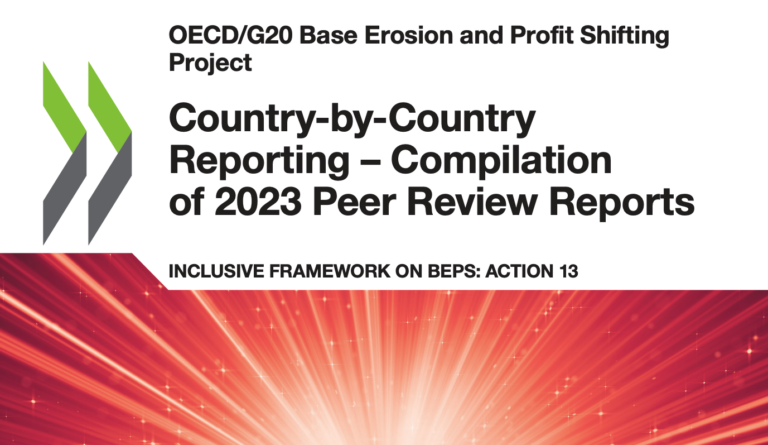
The latest OECD assessment of the BEPS Action 13 minimum standard on Country-by-Country (CbC) reporting has found that the Cayman Islands meets all the terms of reference with its domestic legal and administrative framework, as well as its exchange framework.
A third assessment category in relation to the appropriate use of CbC reports does not apply to the islands as a non-reciprocal jurisdiction that does not receive CbC reports submitted to tax authorities in other jurisdictions.
Overall, the OECD concluded there had been strong progress in international efforts.
However, 30 jurisdictions, including the US, China and India, have received at least one recommendation to improve their legal framework for country-by-country reporting by large multinational companies.
The recommendations for the US, China and India have been in place since the first review, covering 2017-2018, according to the report. The US should ensure that its definition of “revenue” is consistent with the minimum standards adopted by the inclusive framework, the review said.
It further recommended that the United States’ competent authority should continue to work actively towards signing bilateral competent authority arrangements with jurisdictions of the OECD Inclusive Framework that meet the confidentiality, consistency and appropriate use conditions, and with which the United States has an agreement in effect that allows for the automatic exchange of information.
More than 140 countries have committed to implementing the CbC reporting standard. It requires tax administrations to collect and share detailed information on all large multinational enterprises (MNEs) doing business in their country.
This information includes the reported revenue, profit before income tax, and income tax paid and accrued, as well as the stated capital, accumulated earnings, number of employees and tangible assets, broken down by jurisdiction.
The sixth annual peer review of BEPS Action 13 considered the implementation of the CbC reporting minimum standard by jurisdictions as of April 2023 and covered 136 Inclusive Framework members.
It showed that so far more than 110 jurisdictions have introduced legislation to impose a filing obligation on MNE groups, covering practically all MNE Groups with consolidated group revenue at or above the threshold of EUR750 million (US$850 million).
Where legislation is in place, the implementation of CbC reporting has been found largely consistent with the Action 13 minimum standard.
Many recommendations made in the first five peer review phases have now been addressed and these recommendations have been removed, the OECD noted, adding that there are more than 3,000 bilateral relationships in place for the exchange of CbC reports.
The Cayman Islands Department for International Tax Cooperation (DITC) has established a CbCR portal. Cayman Islands multinationals with a consolidated group revenue of US$850 million or more first reported CbC data for the fiscal year beginning in January 2016.
Cayman automatically exchanges reported information with other jurisdictions that have agreed to it and are party to the Multilateral Convention for Mutual Administration in Tax Matters or any other tax convention or tax information exchange agreement to which the Cayman Islands is a party.


